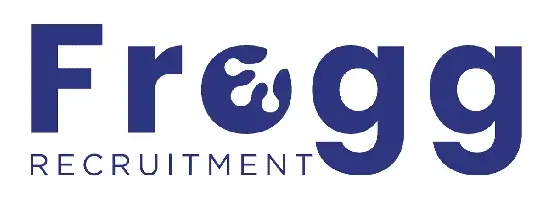RECRUITMENT PROCESS:
HOW TO IMPROVE YOUR HIRING PROCESS IN 8 STEPS.

How to improve your hiring process in 8 easy steps
Successful hiring of talent can help you find top-quality candidates for a role and fill your open positions efficiently. Your recruitment methods will determine your company’s future. Every new hire will either have a good impact on customer happiness, business growth, and profitability or will have a negative one. It will also set future guidelines on recruitment and selection making your recruitment process streamlined. Efficiency is key to ensuring productivity.
What is Brand Awareness? Brand awareness is the degree of consumer familiarity with a specific brand. It is measured by how well consumers can recognize the brand’s logo, name, products, and other assets. An employer brand is what the company communicates to both future and present employees as its identity, and it is a crucial part of the employee value proposition. It encompasses the goals, principles, character, and culture of an organization. A strong employer brand conveys that the business is an excellent employer and a desirable place to work. Employer brand influences market belief of the company, employee engagement and retention, and hiring of new employees.
According to Office Vibe, more than 75% of professionals are passive candidates who are not currently looking for a job but are open to new job opportunities. Building a strong employer brand not only reduces employee turnover by 25%, but also attracts these passive candidates to your company over others as stated on Indeed. Candidates will likely apply for a job if the employer actively manages its brand by responding to reviews, updating the company’s profile, and sharing updates on the company’s culture and work environment. Exercising the right employment values is of most importance to ensure longevity.
To develop an employment branding strategy, consider the following:
Know the organization’s business vision, missions, values, and culture.
Conduct internal and external searches to how other leading companies are focussing on values and office culture and to practice the best working environment.
Define an employee value proposition.
Develop an employee marketing strategy.
Align the employer brand with the overall company brand.
Respect the jobseeker and the reasoning for the job application.
Ensure that the people and management practices support the organization’s employer brand.
The right skillset attracts the right talent and seems like the key factor in deciding whether a candidate is a good fit. Truth be told, skills can be acquired, but personality and passion cannot. There is something called the person-job fit. The phrase “person-job fit” refers to how a person’s personality characteristics and the demands of work align. When on the ideal candidate to fit the role, consider how a candidate’s personality traits align with the daily job tasks. For example, a trait such as empathy would be much more important for a nurse or a social worker than it would be for a tax attorney or a computer programmer.
It is said that failures exhibited by new employees may result from flawed interview processes. Interviewers tend to be too focused on other issues, too pressed for time, or lack the confidence in their interviewing abilities to pay attention to red flags. This is because the job interview process focuses on making sure new hires are technically competent. These are additional factors like coachability, emotional intelligence, temperament, and motivation. How a jobseeker responds to you after an interview is of very importance as its a result of your interview processes.
Interviewing the candidate.
When interviewing a candidate, as the interviewer you do not want to be rendered ineffective. Ensure that you create structure, establish minimal standards for nonverbal cues, manage interviewer consistency, and judge applicants based on performance not prior experience.
Letting the candidate interview you as a Company
Allow prospective employees to interview you as well. Letting candidates ask questions gives you a chance to see what is important to them. It also lets them decide whether they want to keep pursuing a job at your company or decide that it is not the right fit for them. You may want to employ them, but do they want to join your company? Candidates usually ask about company culture and values, meaning what do you do to keep staff developed and skilled? Which other benefits apart from Medical Aid and Pension do you offer? As a Jobseeker use these Unique Interview Questions to Ask Potential Employers.
Offering employee benefits and rewards has multiple advantages and can only grow an individual. A comprehensive choice of employee benefits and additional “benefits” or rewards can be an effective way to attract a diverse talent pool. It also boosts staff morale, energy, and productivity. A great employment package can significantly affect employees decision to join a company, as they will feel valued. This leads to an increase in employee loyalty, productivity, and overall satisfaction with you as their employer.
In addition to competitive salaries and good company culture, companies that offer work-life balance and comprehensive health insurance packages appeal to a broad range of candidates. There are plenty of traditional work benefits that attract top talent, and there is no shortage of unusual and creative benefit options either.
In today’s day and age people are encouraged to leave reviews or comments on work and service-orientated experiences. Potential employees often look for insider information about the organizations they wish to work for, including wage expectations, interview advice, and testimonials. When deciding to apply for a job, candidates check the ratings and reviews of the organization. If they dislike what they see, the possibility is there for jobseeker not to apply.
It’s of great importance to respond to these complaints or reviews in the most professional manner as the new prospective jobseekers might respond to the manner you respond to each review. A terrible reputation would prevent 40% of job searchers from accepting the position accordingly to glassdoor.
Being involved in reviewing websites and posting correct information are two things that attract great jobseeker prospects. If you have a lot of negative reviews from former employees, it may be time to work on your company image, culture and values before you try to fill any open positions. What jobseekers view on google and the internet counts. Its sometimes real facts or sometimes bogus reviews, but all need to be addressed professionally. This can improve your employee retention and lead to more positive reviews that will attract quality employees. It might be the jobseekers ultimate decision in accepting a new job offer or not.
Try, where possible, to limit the number of stages of your interview process. Be up-front and clear from the beginning about what it will involve and how long it will take. If the interview and feedback process becomes too long, jobseekers simply move on to the next job opportunity. Don’t leave a negative interview impression, stand out from the crowd and show that your company has values. Use a trustworthy and authentic recruitment agency to source staff and follow their recruitment and selection process. This will help with transparency and improve the overall candidate experience during the interview process.
Jobseekers do want to be thoroughly assessed, and multi-stage interview processes can, in the right circumstances, be as much a factor in successfully persuading someone to join, as putting them off. After each interview, be clear on the next steps and supply proper feedback. If an applicant is declined, try to give objective feedback as to why they were unsuccessful.
It’s important not to waste the jobseekers time as they might put off other job opportunities while waiting for your feedback. People hire people and human engagement is key. Hiring with a little more empathy, kindness, and compassion should be at the top of the recruitment and selection list. It’s also important to supply the recruiters you use with proper and insightful feedback. Recruitment Agencies have a responsibility to supply professional job interview feedback to their candidates to enhance future business. Feedback would be helpful to jobseeker and leave a feeling of confidence in applying for different positions in the future.
Get feedback from the jobseeker you interviewed, ask them to complete an interview survey form to how they experienced your interview and recruitment process. Use this feedback from recruitment and employment surveys, to build your brand and to improve on future recruitment and talent acquisition.
One of the most important aspects to consider before making a job offer to new prospective employees is to think like a new employee. What is important to them, what do they look for? Although crucial, money is not everything. New Employees look for other important factors like working hours, working environment, team and company culture, and future study or development offerings. They also look at reviews on google and other well-known websites for guidance on company image and how other employees experience the said company.
Do you as a new prospective employer offer further studies or the opportunity to obtain certificates and training? What else apart from a salary do they offer? In the case of a hospitality company operating a Hotel, do they offer discounts on accommodation, meals and drinks? It all depends off course on the industry the company is in. What other benefits in general are on offer that form part of the total package being offered? Does a company offer a 13th Bonus, a performance bonus, or incentives?
It’s a confusing question as there are big differences to consider before starting the recruitment process. Recruitment is when a vacancy needs to be filled, when a position opens up at a company. Maybe someone left, the position could have evolved, need an additional staff member or you need a different skill set.
On the other side, talent acquisition is more about developing an effective and purposeful process that enables you to consistently find people and talents. Talent Acquisition is more about attracting talent through different means, like setting up workshops and offering internships and leadership. Employer or Company Branding Image and look need to stand out.
Both recruitment and talent acquisition are important for the development of the company. The true assets of any firm are its employees, staff morale, and productivity. Additionally, hiring the proper individuals helps greatly in meeting productivity goals, coming to wise business decisions, and maintaining employee retention.
In conclusion, you positioned your company for success by attracting the right individuals by implementing an organized and thorough hiring procedure. Employ personnel that will promote the business, and strengthen the corporate culture. By doing this will establish the business as a market leader in talent acquisition and staff retention.
Failure to implement the proper recruitment procedure will have the exact opposite effect, producing underperforming staff. This will end up wasting time, money, and resources. Dealing with a leading employment agency helps, as they will keep the employment process professional and informative. This in the end will assist you as a company to improve your recruitment and selection process.
